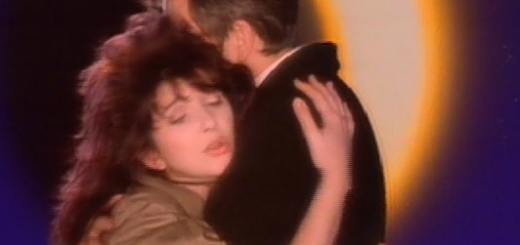“Biko” by Peter Gabriel
The late Steve Biko (1946-1977) can be considered the most famous martyr of the days of South African apartheid. Apartheid was arguably the most-blatant institutionalized violation of civil rights based on race that the 20th century bore witness to.
In other words, it was the type of system that would bother anyone who is truly concerned for the wellbeing of his fellow man. And obviously Peter Gabriel – as with many British singers we may add – was such an individual, as he decided to drop a song in memory of Steve Biko. And to note this track came out in 1980, only a couple of years after Biko’s murder.
Stephen Biko was from a group of native South Africans known as the Xhosa. And accordingly, this song commences with an interpolation of another devised by his people called Ngomhla Sibuyayo. Long story short, such is an anti-apartheid piece. To further note, apartheid was still extant when this song was dropped.
The Lyrics of “Biko”
The first verse proper points to when and where Steve was murdered, which, long story short, was in police custody. And the second verse then further alludes to the fact that, most simply put, his death was a result of institutionalized racism. That would likely be why Gabriel notes that “the outside world is black and white”, i.e. South Africa being a nation that was very much defined by race. But alas, “only one colour [is] dead”. This is a statement that reads like a poetic allusion to the fact that in the grand scheme of apartheid, it only tends to be the native South Africans, i.e. the Blacks, who end up on the receiving end of a bullet or other deadly weapons.
Yet and still, the struggle continues. That is what the vocalist means in the third verse by “you can blow out a candle, but you can’t blow out a fire”.
Stephen Biko, as brave as he may have been, was just one of countless individuals who was willing to sacrifice his life for the cause. And in fact, considering that he didn’t rise to international prominence until after he was murdered, in a way it’s as if the apartheid regime shot itself in the foot by taking his life. And Peter actually implies as much in the post-chorus of this song. As for the main chorus, he basically uses the opportunity to mourn Biko’s death.
Takeaway
All in all, even though more lyrics are dedicated to criticizing apartheid than memorializing Biko, the latter sentiment is what takes precedence. Or let’s postulate that if not for the legend of Biko and the ruthless way in which he was murdered, in all likelihood Peter would have never been moved to write and subsequently release this track in the first place.


When was “Biko” released?
This song is featured on the third album which Peter Gabriel put out, entitled Peter Gabriel. In the name of staving off confusion, this album is often referred to as Peter Gabriel III (or Peter Gabriel: Burn). This is a project that was backed by Charisma Records, Mercury Records and Geffen Records. And the official release date of “Biko” was on 23 May 1980.
The Xhosa song sampled into the intro of Biko is called Ngomhla Sibuyayo. Meanwhile, the album version ends with Senzeni Na?, while the outro of single version samples Nkosi Sikelel’ iAfrika. And all of these recordings were reportedly taped during Stephen Biko’s funeral.
Yes, “Biko” was in fact released as a single, making it onto the Top 40 of the UK Singles Chart.
In 1987, Peter Gabriel released a live version of “Biko” as a standalone single. This version also managed to appear on the UK Singles Chart in addition to charting in New Zealand. Said release coincided with that of Cry Freedom, a movie about Stephen Biko which stars Denzel Washington. And that time around a music video was also made for the song, as directed by Lol Creme.
As has been exemplified by the history of some other songs we have researched for this blog, the apartheid regime was uber-sensitive towards works of art which criticized its ideology and practices. So of course “Biko” was in fact banned in South Africa.
“Biko” makes Steve More Popular!
Peter Gabriel accomplished his artistic goal with this song, as this track significantly popularized the late Biko’s profile around the world. Millions of people across the globe heard of Biko for the first time through this song.
More Facts
This is considered to be the first of a number of anti-apartheid songs which came out during the 1980s.
Peter Gabriel was granted the opportunity to sing “Biko” at an event known as the Nelson Mandela 70th Birthday Tribute, which was actually held in London in 1988. At the time Nelson Mandela (1918-2013), who is considered the most prominent anti-apartheid activist in history, was still incarcerated. Eventually he was released, after being locked up for 27 years, in 1990. So then a second concert was held in London, once again at Wembley Stadium, entitled Nelson Mandela: An International Tribute for a Free South Africa. And at that event also, Peter recited “Biko”.
Apparently Peter didn’t just base these lyrics on a surface knowledge of Stephen Biko, as he had reportedly read several biographies about him.
This song was musically inspired by the soundtrack of a 1964 film, set in South Africa, entitled Dingaka.
It has been noted that this track marked Peter’s first official foray into world music. The singer went on to establish himself as a “champion” in this genre of music.
Peter’s writing of this song was buttressed by the production of Steve Lillywhite.
“Biko” is noted as being a Peter Gabriel fan/critic favorite. This is the reason it has appeared on a number of his compilation albums.








